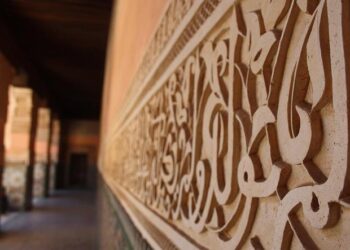Archaeologists in North Macedonia have uncovered what may be an ancient military outpost with a remarkable historical connection: it could be the birthplace of Alexander the Great’s grandmother. The site, recently brought to light amid ongoing excavations, offers new insights into the early Macedonian kingdom and its notable figures. Researchers believe this discovery not only sheds light on regional military history but also provides a rare glimpse into the ancestry of one of history’s most legendary conquerors.
Discovery of Ancient Military Outpost Sheds Light on Royal Lineage in North Macedonia
Archaeologists in North Macedonia have uncovered a well-preserved military outpost dating back over two millennia, offering significant insights into the early Hellenistic period. This discovery is particularly remarkable due to its potential connection to the royal lineage of the ancient Macedonian kingdom. Initial analyses suggest that the site could be linked to the maternal ancestors of Alexander the Great, possibly marking the birthplace of his grandmother. The location’s strategic position near significant trade and military routes underscores its importance as a hub of both defense and administration during a turbulent era of regional power struggles.
The excavation revealed a complex structure featuring fortified walls, barracks, and storage facilities, hinting at organized military operations that supported the burgeoning Macedonian empire. Key artifacts recovered include:
- Ancient weaponry such as iron spearheads and arrow tips
- Ceramic vessels resembling royal insignia
- Inscriptions referencing prominent noble families
| Artifact | Estimated Age | Significance |
|---|---|---|
| Iron Spearhead | Approx. 4th century BCE | Indicative of military presence |
| Ceramic Vessel | Late Classical Period | Possible emblem of nobility |
| Stone Inscription | 3rd century BCE | Reference to royal family names |
Archaeological Evidence Suggests Possible Birthplace of Alexander the Great’s Grandmother
Recent excavations at a fortified site in North Macedonia have unveiled compelling archaeological evidence hinting at the origins of a prominent figure in ancient history-Alexander the Great’s grandmother. Researchers uncovered remnants of a well-preserved military outpost dating back to the 4th century BCE, featuring defensive walls, weapons, and domestic artifacts. The strategic location and exceptional craftsmanship of the structures suggest an important settlement where influential families might have resided, potentially linking this site to Alexander’s maternal lineage.
The discovery is bolstered by artifacts that align with historical descriptions of the royal family’s movements during that era, including pottery shards inscribed with symbols connected to Macedonian nobility. Archaeologists also highlighted several significant findings:
- Fortified gates indicating high-security measures
- Ceramic vessels consistent with elite burials
- Organic remains suggesting sustained residency rather than temporary military use
| Feature | Description | Date Estimated |
|---|---|---|
| Stone Wall | Defensive perimeter, 3 meters high | Late 5th century BCE |
| Weaponry | Bronze spearheads and arrow tips | 4th century BCE |
| Inscriptions | Markings related to Macedonian royalty | Approx. 350 BCE |
Experts Recommend Expanded Excavations to Uncover Historical Significance and Cultural Context
Final Thoughts
As excavations continue at the ancient military outpost in North Macedonia, researchers hope to uncover more definitive evidence linking the site to the lineage of Alexander the Great. Should these findings be confirmed, they could offer unprecedented insights into the early history of one of antiquity’s most iconic figures, shedding new light on the origins of his remarkable dynasty. The ongoing study not only deepens our understanding of the region’s rich archaeological heritage but also invites a reevaluation of the narratives surrounding Alexander’s ancestry and the wider Macedonian legacy. Stay tuned as this fascinating story develops.
















